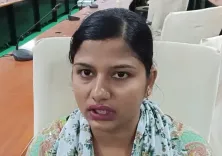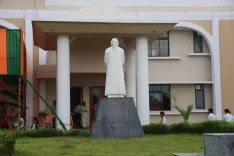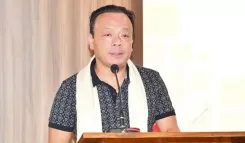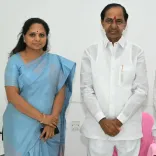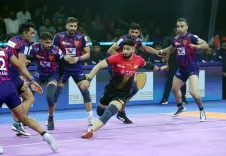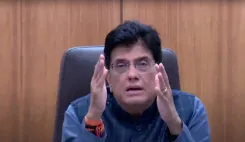How Has Gujarat Resolved 15.79 Lakh Grievances Through the 'Swagat' Programme?

Synopsis
Key Takeaways
- 'Swagat' has resolved over 15.79 lakh grievances since 2003.
- The programme aims to connect citizens with state officials through technology.
- Grievances can be submitted at various administrative levels.
- Direct hearings by the Chief Minister enhance accountability.
- High resolution success rate of over 99%.
Gandhinagar, Sep 2 (NationPress) The 'Swagat' (State Wide Attention on Grievances by Application of Technology) initiative in Gujarat, powered by technology, has become a benchmark for citizen-focused governance, successfully addressing over 15.79 lakh complaints in the last two decades, according to official reports released on Tuesday.
Launched in 2003 by then Chief Minister and current Prime Minister Narendra Modi, the programme has logged 15,84,535 grievances, with 15,79,002 successfully resolved.
Under the guidance of current Chief Minister Bhupendra Patel, the programme has expanded its outreach.
In just the past four years, 2,39,934 citizen complaints have been addressed via 'Swagat'.
The Chief Minister personally oversees state-level hearings, conducted every fourth Thursday of the month, allowing citizens the opportunity to present their grievances directly.
The goal of 'Swagat' is to utilize technology to bridge the gap between citizens and government.
Complaints are handled at four levels: state, district, taluka, and village.
At the district level, grievances are managed by the District Collector; at the taluka level, by the Prant Officer; and at the village level, local officials collect applications from the 1st to the 10th of each month for review.
What distinguishes the state-level platform is that it provides a forum for ordinary citizens to be heard directly by Chief Minister Patel.
Residents can file complaints in person, via post, or online.
In 2021, the state government launched the 'Write to Chief Minister's Office (CMO)' online portal for direct grievance submissions.
One notable success story involves Bharatbhai Khodifad from Mahuva, Bhavnagar district.
His family had struggled for decades to secure ownership documents for a residential plot promised following the acquisition of nine acres of ancestral land in 1967.
Despite numerous attempts at local and district levels, the issue remained unresolved.
However, upon approaching the 'Swagat' programme, his case was directly addressed by Chief Minister Patel.
“The Chief Minister listened attentively to my grievance and directed officials to prepare the land documents,” Bharatbhai shared.
“After years of uncertainty, we finally secured ownership, enabling us to pursue a loan for my children’s higher education.”
The state government views 'Swagat' as a fundamental aspect of its efforts to enhance quality of life.
By ensuring complaints are not only acknowledged but also acted upon, the programme serves as a vital accountability tool within the governance framework.
Officials emphasize that the success rate for grievance resolution under 'Swagat' is remarkable, with over 99 percent of registered complaints resolved since its inception.

